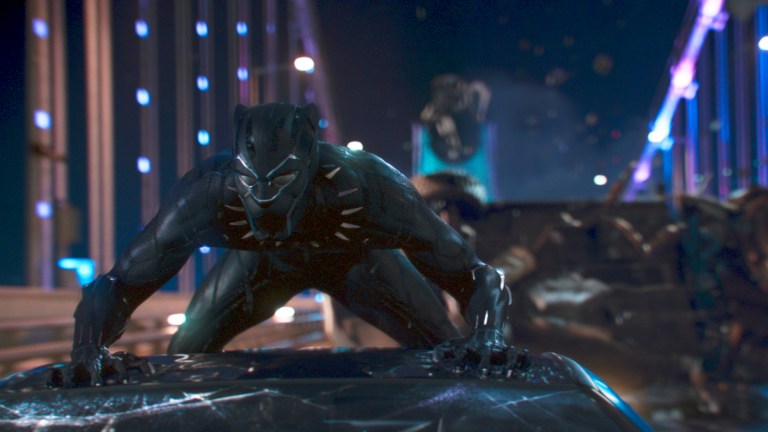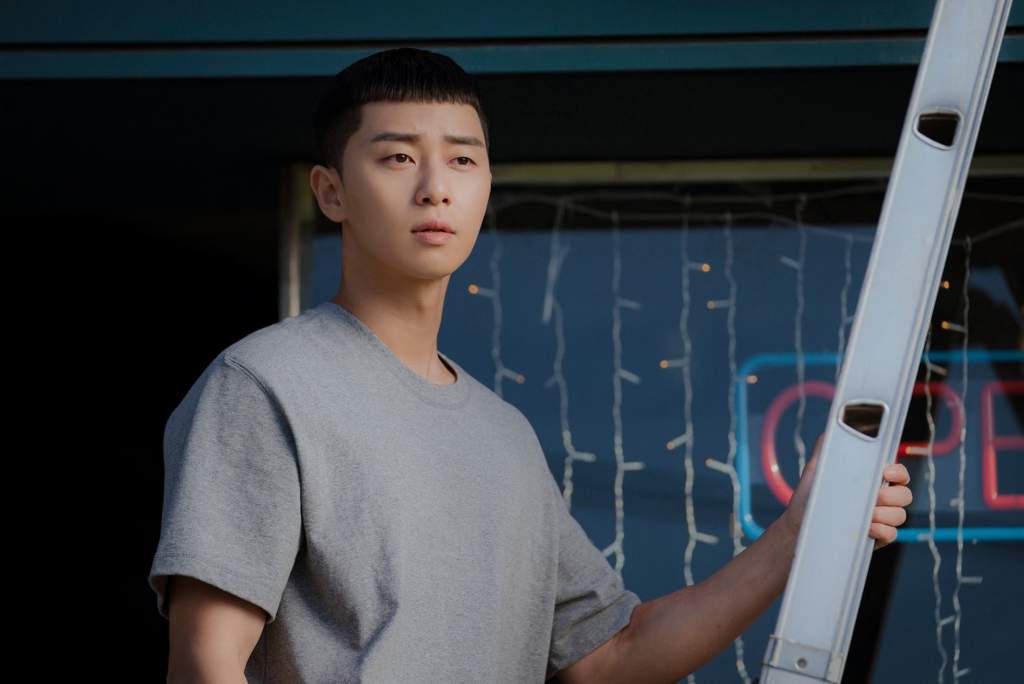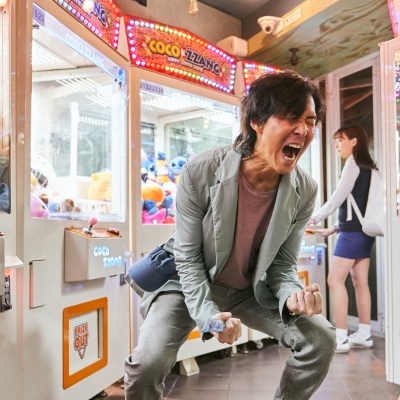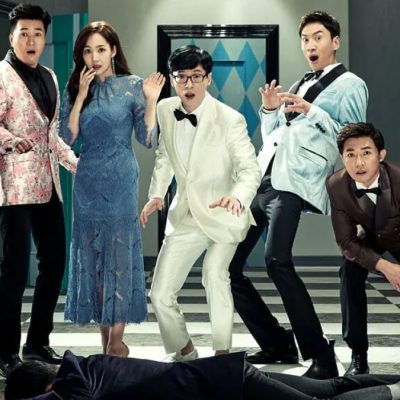From BTS to Busan—How Marvel is Courting K-Culture
If you needed any more proof that Korean entertainment is becoming globally mainstream, look no further than the MCU.

If you needed any more proof that Korean entertainment is becoming globally mainstream, look no further than the Marvel Cinematic Universe. Over the weekend, rumors surfaced that “Friends,” a song written by BTS’ Jimin and performed by Jimin and V, would be on the soundtrack for Marvel’s Eternals. On Monday, the rumors were confirmed, getting many ARMY excited about the group’s inclusion in one of the world’s biggest pop culture franchises.
The U.S. is not the center of the universe (contrary to some Americans’ belief), but it is the world’s largest exporter of popular culture and has been for a while. While the U.K. and Japan (and, more recently, Korea) are recognized as other cultural exporters on the global stage, American film franchises like the MCU remain the biggest stories in the world. If America’s “soft power” is to be effectively challenged, it’s probably going to come not simply from the rise of other countries’ entertainment industries, but from U.S. companies, like Netflix and Disney, investing in international markets as a way to grow, incorporating a wider variety of international cultures into their story offerings in the process. For better and for worse.
While much has been written about the troubling lengths Hollywood will go to in an attempt to access the massive Chinese box office, the rise of Korean culture and American companies’ attempts to access it has only recently come into the “mainstream” U.S. cultural conversation, spurred by the phenomenal success of Squid Game. But Korea has been a maker of internationally successful stories for decades now, and the MCU has been courting the Korean entertainment industry and market (and vice versa) for a few years now.
Age of Ultron & The Battle of Seoul
The first large example of Marvel’s interest in courting the Korean entertainment industry and market came in 2014, when the studio headed to Seoul for two weeks to film scenes for Age of Ultron, using the capital as the setting for Ultron’s battle against the Avengers that would end in Black Widow’s capture. The 16-day shoot necessitated blocking off major boulevards and bridges in Seoul, and was partially funded by a $2.3 million rebate via the Korean Film Council’s incentives program.
Though the scene is explicitly set in Seoul (Vancouver must be jealous), as this op-ed in The Diplomat points out, the sequence didn’t really make very good use of the city’s distinctive charms, despite filming in iconic locations like Seoul’s Mapo Bridge and parts of the city’s Gangnam district. In other words, if the Korean government’s interest in bringing Hollywood to Seoul was partly as a way to promote and boost tourism to the city, this isn’t it.
The film notably features Helen Cho (Claudia Kim), a Korean geneticist and leader of the U-GIN Research Group who provides medical attention to Clint following a battle with HYDRA, using a technology she has developed called the Regeneration Cradle to save his life. Ultron later uses the Scepter to control Cho, getting Cho to build a human-like body for him. That body would eventually go to Vison, after Cho was able to sabotage Ultron’s attempts—basically, she saved the universe from Ultron. Frankly, Helen Cho was a badass character, and one who has yet to be brought back despite both her considerable talents and the fact that, the last time we saw her, she was working at the New Avengers Facility.
Black Panther Goes to Busan, Plays Psy
Age of Ultron wouldn’t be the last time the MCU traveled to Korea to film key scenes; 2018’s Black Panther featured a sequence both shot and filmed in Busan, Korea’s second largest city. This time, several cast members— including Lupita Nyong’o’s Nakita—speak Korean (to varying degrees of success). The two-week shoot involved 150 cars and 700-plus people and featured some of the city’s iconic features, including Jagalchi fish market, Gwangalli Beach and Gwangandaegyo Bridge.
“Busan was the perfect location for Black Panther,” director Ryan Coogler told THR, saying that the city reminded him of his hometown of Oakland, which also features in the film. “Busan is a place full of energy, where modern architecture and traditional buildings create great harmony against the backdrop of a beautiful beach.”
Black Panther would pre-date Eternals‘ use of a Korean-language song on its official soundtrack. The film features Psy’s “Hangover”, which includes both Korean and English-language lyrics (Snoop Dogg features on the track), during the Busan-set casino scene that precedes the epic car chase through the city’s streets. Black Panther would go on to earn $42.8 million in Korea, which has the fifth largest box office by revenue despite its comparatively smaller population. (Korea has just under 52 million people.)
Marvel’s Asia Press Tours
In addition to filming in Korea, Marvel has selected Seoul as the host city for their Asia press conference for four of their recent tentpoles: Spiderman: Homecoming, Black Panther, Avengers: Infinity War, and Avengers: Endgame. The Endgame promotional event in 2019 attracted 4,000 fans, and (via The Diplomat) included K-pop style Avengers lightsticks that “lit the entire stadium purple throughout the night.”

Captain Marvel 2 Casts Park Seo-joon
Earlier this year, Korean actor Park Seo-joon (perhaps best known to American audiences for his starring role in 2020 Netflix K-drama Itaewon Class) was cast in Captain Marvel 2 (aka The Marvels). The Nia DaCosta-helmed sequel is currently filming, and is slated for a 2023 release.
It’s unclear, at this point, which role Park will play in the MCU film. Will Park play Amadeus Cho, the best known Korean American superhero in Marvel Comics, and the character who would become the Hulk? (Side note: also the son of the aforementioned Helen Cho.) Or could he be Noh-Varr (aka Marvel Boy), a soldier within the Kree Empire who loses his family when his ship crashes on Earth? Or will he be cast in a smaller role? The answer is relevant to just how committed Marvel is to embracing K-culture and its global audience.
Jackson Wang’s “This is My Time”
Some MCU trailers—namely the ones that introduce new characters to the fictional universe—have a bigger job than others. This was the case with the trailers for Shang-Chi and the Legend of the Ten Rings, which not only had the job of introducing a lesser known Marvel Comics character (with a racist history), but also convincing audiences to embrace him during a global pandemic.
As we know, this all paid off. Shang Chi is a good movie, and it did well at the box office, and while not all of it is down to the promotion, it certainly helped. I’m thinking specifically about this initial trailer for the film, which highlights the film’s impressive action choreography, perfectly paired with the beats of Jackson Wang’s “This Is My Time.” Wang is a Hong Kong-born rapper and singer who rose to fame as part of the K-pop group GOT7. The singer’s inclusion in the trailer got many K-pop and C-pop fans excited. Though Wang wouldn’t go on to be featured on the film’s soundtrack, for whatever reason, his inclusion in the trailer signaled to many fans that the film’s interest in East Asian cultures and identities might go beyond the surface level.
BTS Appears on the Eternals Soundtrack
BTS balance has been restored in the MCU once again, following the editing out of a BTS ad-lib from the Falcon & The Winter Soldier finale. Not only is “Friends” featured in Marvel’s Eternals, but the film also reportedly includes a BTS reference.
“Friends” is a Korean-language song that tells the story of the decade-long friendship between members Jimin and V, who were high school friends and fellow BigHit trainees together before debuting in BTS in 2013. The lyrics are pretty specific to the Jimin/V relationship, so it will be interesting to see how Eternals incorporates the track into its narrative.
Marvel’s Eternals hits theaters on November 5th. Be sure to look out for the BTS reference.


